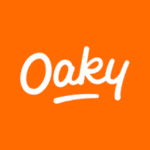 In today’s rapidly evolving and positive COVID business landscape, the specter of fraud, corporate malfeasance, and unethical behavior looms large. In response to the pandemic, many organizations reduced head count resulting in potential control deficiencies. The impact of these issues extends beyond financial loss, encompassing reputational damage, loss of employee morale, and erosion of trust.
In today’s rapidly evolving and positive COVID business landscape, the specter of fraud, corporate malfeasance, and unethical behavior looms large. In response to the pandemic, many organizations reduced head count resulting in potential control deficiencies. The impact of these issues extends beyond financial loss, encompassing reputational damage, loss of employee morale, and erosion of trust.
To combat these challenges, organizations must establish robust fraud awareness programs that encompass collaboration, communication, training, tone at the top, and effective investigative protocols. This article explores how these five elements combine to create a holistic approach to mitigating the risk of fraud.
Collaboration: fostering open dialog
Collaboration involves working collectively toward shared goals. In the realm of fraud awareness, this translates to creating an environment where open and honest discussions are encouraged. Fraud can no longer be the “dirty little secret” that goes unspoken. Building collaboration requires the active involvement of leadership, engaging multiple disciplines (legal, HR, sales, finance, etc.), and promoting a culture of accountability. Consider brainstorming sessions, whistleblower hotlines, and measurable metrics to enhance collaborative efforts.
Communication: spreading the ethical message
Effective communication serves as the ethical background music that permeates an organization. Through various channels and platforms, companies can disseminate relevant, timely, and notable messages about fraud awareness. Reinforcing whistleblower hotlines, integrity posters, and clear messaging about company standards is crucial. Tailoring communication to diverse audiences ensures maximum impact, and live interactions can reinforce the message’s importance. As part of employees’ annual review process consider asking each employee to attest that they have not witnessed or participated in any activities that are not consistent the organization’s ethical standards.
Training: empowering employees as the first line of defense
Education empowers employees to identify potential risks and report them appropriately. While approximately 50% of organizations provide fraud training, employees are a company’s best asset in combating fraud. According to the 2022 A Report to the Nations (issued by the Association of Certified Fraud Examiners) 42% of frauds are detected by tips and over 50% are reported by employees. More frauds are detected by accident, 5%, than external audit, 4%. Tailored training programs that align with roles and responsibilities are essential. New hires, especially, should receive comprehensive fraud/ethics training to instill a culture of ethical behavior from the outset.
Tone at the top: setting the ethical standard
“Quality and Character of Sound at the Top” encapsulates the essence of tone at the top. Leadership must lead by example and demonstrate unwavering commitment to ethical behavior. This commitment should be evident in actions that reinforce the organization’s policies and procedures. Regular attestation from senior leadership, fair discipline procedures, and the reinforcement of open-door policies all contribute to a strong ethical tone.
Effective investigative protocols: navigating the aftermath
Though the goal is to prevent fraud, effective investigation protocols are essential for addressing incidents that slip through the cracks. Employees’ vigilance, reported through collaborative channels, can trigger the need for an investigation. Maintaining confidentiality, involving independent teams, and complying with legal regulations are vital. Investigative plans, timelines, and cross-referencing tools help streamline the process, with outcomes supporting policy enhancements and possible insurance recovery.
In the modern business landscape, a comprehensive fraud awareness program is a necessity rather than a luxury. The financial implications of fraud are substantial, but the collateral damage—reputational harm, employee mistrust, and lost morale—can be equally devastating. By implementing the five essential elements discussed—collaboration, communication, training, tone at the top, and effective investigative protocols—organizations can build a robust shield against fraud. Such proactive measures not only protect financial assets but also foster an ethical culture that bolsters trust and integrity within the company.
















